Ten years after the horrors of 9/11, Canada and the world are still at a loss to offer a consistent, intelligent definition of religion, either at home or abroad. Religion, pundits say, is like pornography: We know it when we see it. Do we? Short weeks ago, thousands lined the streets of Toronto, chalking sidewalks with last words of hope and love - acts and words that certainly seemed religious. Was it just secular national sentiment, or was there something intangible, something esthetic, something religious, in the response to Jack Layton's passing? We don't know because we no longer know what religion is. With Parliament resumed, that question is going to get tested. Religion and its freedom is being upgraded from a fringe concern to its own corner office at Foreign Affairs, and while most think it's a good idea, no one is quite sure why. Freedom, like equality and fairness, is one of those virtues nestled deep into the Canadian psyche. But the qualifier is everything: religious freedom is not for the faint of heart. None of which is to say the $5-million office is a bad idea. It is high time Canadians caught up with this perplexing global resurgence of religion and the uncomfortable realization that the globe is not populated by ironic, urban secularists. The Office of Religious Freedom was a convenient dual stroke: an electiontime carrot for the Conservative base and a prudent first step to studying religion and its many meanings for policy making. Politics and good policy do occasionally align. But at least two questions loom over the implementation of an office of religion freedom: who will control it, and, well, what is religion? The first is a mirror to concerns over its sister Americabased Office of Religious Freedom, where critics alleged "religious freedom" had Christian evangelical undertones, or, at the more extreme end, was a mirage for conditioning societies for proselytizing. Canada's obsessive politics of multiculturalism, especially in Foreign Affairs, will almost certainly make this a non issue, but it will be important for the new office to express its independence quickly. It may be evangelicals in the Conservative support base who pushed for the office, but its mandate should define religious freedom very broadly. Ironically, evangelical activists in Canada probably won't oppose that. Contra Armageddon advocates, evangelicals generally support freedom of conscience and religion for all religions. Pluralism still lives at large in that community. Still, that distancing may mean justified criticisms of allies as well as easier, politically expedient criticisms of others. And it will mean, challengingly, that the definition of religious freedom the office uses will come under constant fire. Religious freedom for Christian dissidents in China is easy, but what will the office say about Christian anti-homosexual legislation in front of the Ugandan parliament? Religion can go very wrong and this office will need the moral fibre to stand and name its abuses, as well as its assailants. Secondly, this means that the Office of Religious Freedom should spare a desk for Canada. As cathartic as it may be to pronounce on the effects of religion abroad, that work will inevitably feed back into our unsettled consensus on the role of religion at home. The irony should not be lost on observers watching this office that Canada has come under censure from the UN and other international bodies for its own practices of freedom and rights, especially as they revolve around religion. The privileged public funding of Catholic schools in Ontario is one example. The secularist bullies at the Canadian Association of University Teachers and their disingenuous investigations of religious universities is another. Or Quebec's proposed Bill 94, which limits access for those wearing niqabs? The reason this office will be up to its neck in controversy as it monitors abroad is because we have no settled consensus on what religious freedom is at home. It has become a sort of western tradition to outsource our more interesting social experiments, but foreign offices pitching freedom policies good enough for abroad but not at home will pockmark the Canadian political landscape with explosive hypocrisies.

Monitoring religious freedom is tricky work
September 28, 2011
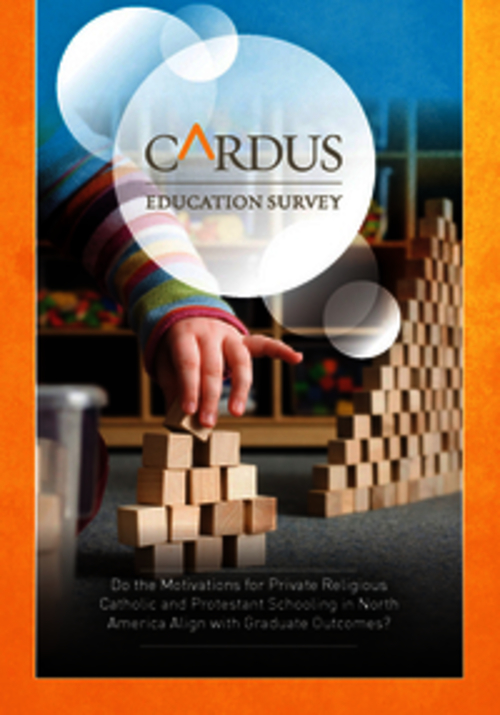
The Cardus Survey results – part 1
To read the full article, click here .
September 26, 2011

Montrealer faces charge of cultic activity, fine, for holding a Catholic mass
MONTREAL: Paula Celani will be in a Montreal courtroom Nov. 1 fighting a fine for attending an illegal Roman Catholic Mass. Canadians of all religious faiths “and even those who care only about protecting Charter freedoms “should cross their fingers that she wins. Celani actually showed up to fight the case this week. Alas, three public sector "witnesses" expected to testify against her were no shows so the matter was delayed until the day after Halloween. "I'm not sure why I'm the one who has to make the effort to come back when they're the ones who didn't show up," Celani said after Tuesday's brief hearing before Judge Jean-Pierre Bessette. "It doesn't make sense, but then nothing about this does. It's ridiculous." Ridiculous doesn't begin to describe it. Frightening is a much better place to start for the events that began with an entirely uneventful gathering of a Catholic group on October 4, 2009. Celani is the one in court only because her signature was on a $700 rental contract for the use of two rooms in a city-owned complex called La Maison du Brasseur in the borough of Lachine, just west of downtown Montreal. About 100 people belonging to a lay Catholic association used the rooms to watch some inspirational videos and have a potluck lunch together. Oh, and horror of horrors, they sang songs and held a Mass behind closed doors. Then everyone went home. End of story. Or so it seemed. Except that seven months later, in April 2010, Celani received a $144 ticket for having allowed the Mass to take place. By so doing, she had broken a bylaw that prohibits "cultic"activity such as "praying, singing religious songs or conducting religious celebrations." Under the same regulations, interestingly, renters are allowed to serve liquor provided they have the necessary permits. They are forbidden, however, from using propane tanks to cook inside the building. So, you can get hammered in La Maison du Brasseur. You just can't blow the place up or mention God. What Celani and her group did not realize was that they were being "observed" by three employees of the borough of Lachine working at the complex that day. In fact, no one had warned Celani, or anyone else in the group, that a Catholic Mass is now a legally prohibited activity in parts of Quebec. Still, the observers dutifully filed reports attesting that the law had been ravaged by prayer, song and thanksgiving. One of the employees, Virginie Gagnon, complained some of the group were even guilty of "soliciting" by attempting to sell rosary beads within the Maison du Brasseur precincts. (In fact, Celani admits, some younger members were selling rosaries to their friends to raise money for an aid project in Haiti. In the immortal words of Ebenezer Scrooge: "Are there no workhouses? Are there no prisons?") Elsewhere in the 15-page document that forms the evidentiary basis for the case against Celani, an employee/witness named Francois Vaillancourt notes that in one video a man on the screen was "speaking in Italian, I believe." Italian, eh? Suspicious, that. No doubt some kind of code these Catholics use among themselves. Kind of like Latin for Mafioso. Such low-rent absurdity can't be allowed to obscure the very real, very serious, very frightening abuse of Charter-guaranteed freedom of speech, freedom of association and freedom of religion here. By what authority can municipal pipsqueaks in Montreal or Lachine or anywhere else for that matter, decide that "religious songs" are anathema while hip-hop music, to take one genre, is just ducky? Under what mandate can they forbid a group of people from renting a room to quietly celebrate their faith, yet allow, say, a group of louts to rent space to set up a TV and collectively drink their faces off watching the Canadiens lose to the Leafs during the Stanley Cup playoffs? (Okay, bad example because it will never happen. But you get my point.) And finally, how do they dare go against established Charter law that freedom of religion doesn't just mean the freedom to keep one's faith in one's head. It means the freedom to live out that faith within the very wide ambit of reasonable behavior in a free and democratic society? With luck, these questions will all be answered Nov. 1 when Judge Jean-Pierre Bessette throws out the ticket and Paula Celani walks out of the courtroom with a big smile on her face, having won one for freedom. Fingers crossed. If not, if the fine is upheld, we are in frightening times indeed.
September 26, 2011

Cardus Education Survey, Homeschoolers: Helen Lee
September 23, 2011
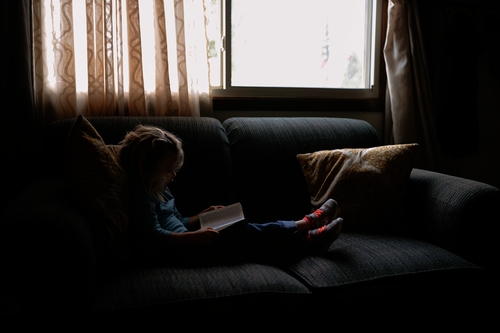
The Cardus Education Survey and Homeschooling
To read the full article, click here .
September 23, 2011
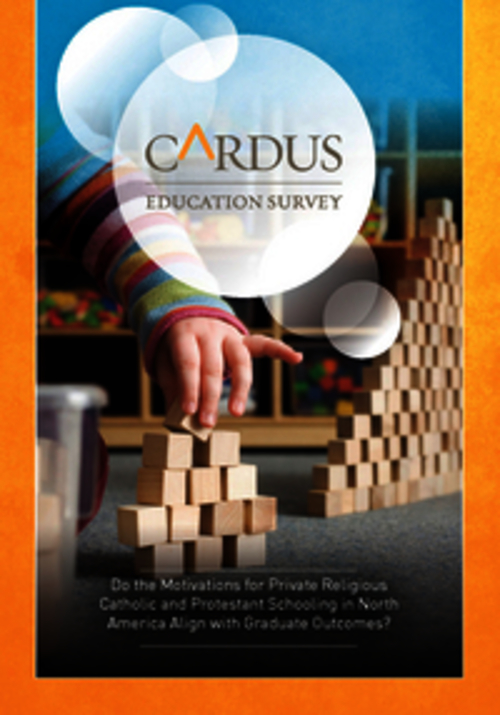
Cardus Education Survey: Christian Schools And Cultural Engagement
September 19, 2011
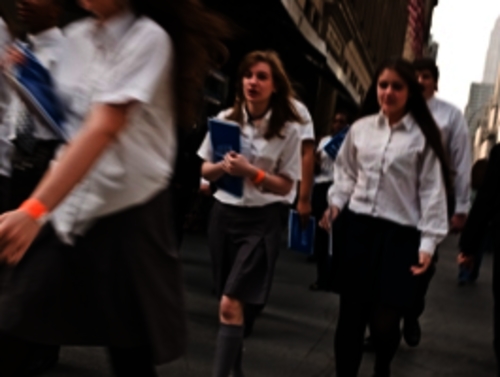
Welcoming Doubt
September 17, 2011
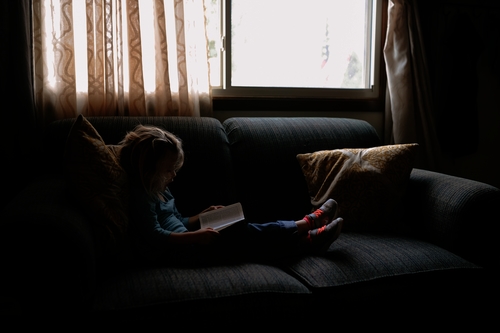
Welcoming Doubt to Christian Education
September 16, 2011

The Cardus Survey’s challenge for Christian education
September 14, 2011
